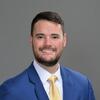Dr. Rementer returns to his alma mater 10 years after graduating. In the time since he left, he has had extensive training in all aspects of foot and ankle surgery. For the last 4 years he was the foot and ankle specialist for an orthopaedic group in Phoenixville. He is dedicated to his patients providing kind, compassionate care that is centered on their needs. He works closely with his patients to get them back on their feet and active as quickly as possible. He specializes in reconstructive surgery of the foot and ankle with a special interest in Total Ankle Replacements. He also has extensive experience treating athletes of all levels including professional athletes and enjoys the challenge of getting them back to sport as quickly as possible. He loves to teach and give back to the profession and his community, which brought him back to TUSPM to educate the next generation.
Courses Taught
Courses taught: Principles of Podiatric Surgery 2

